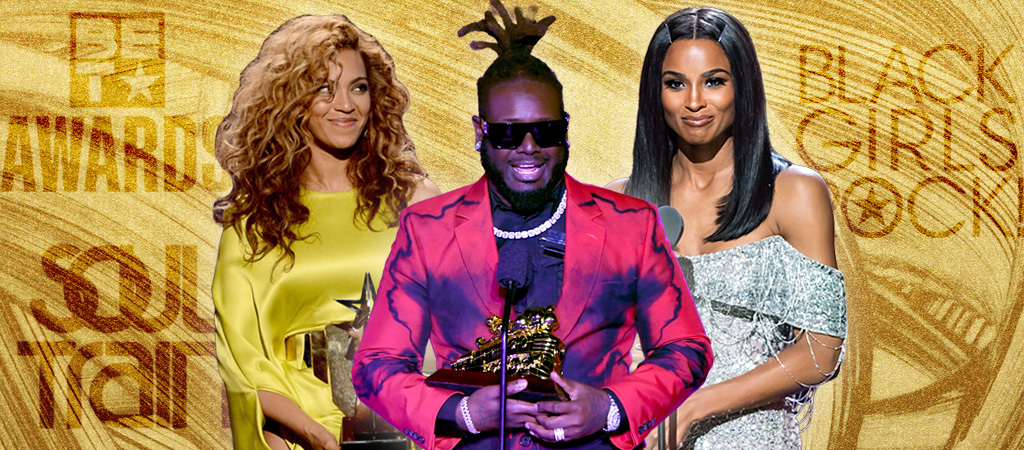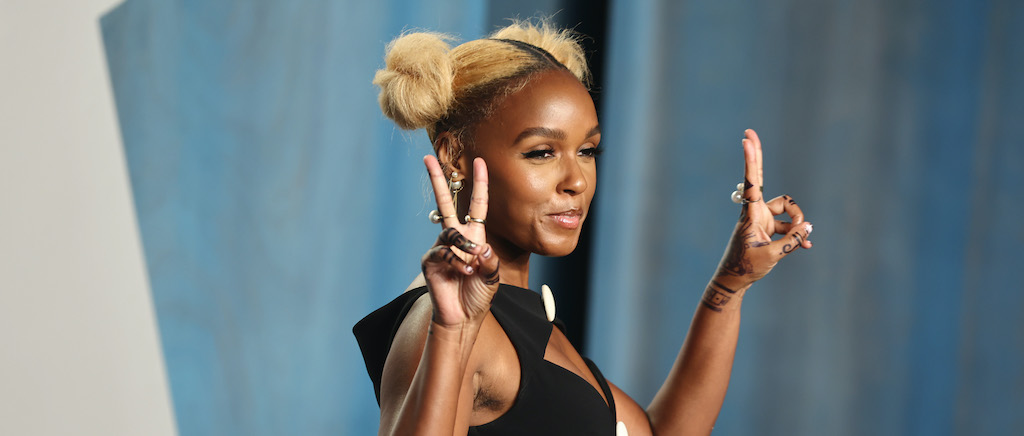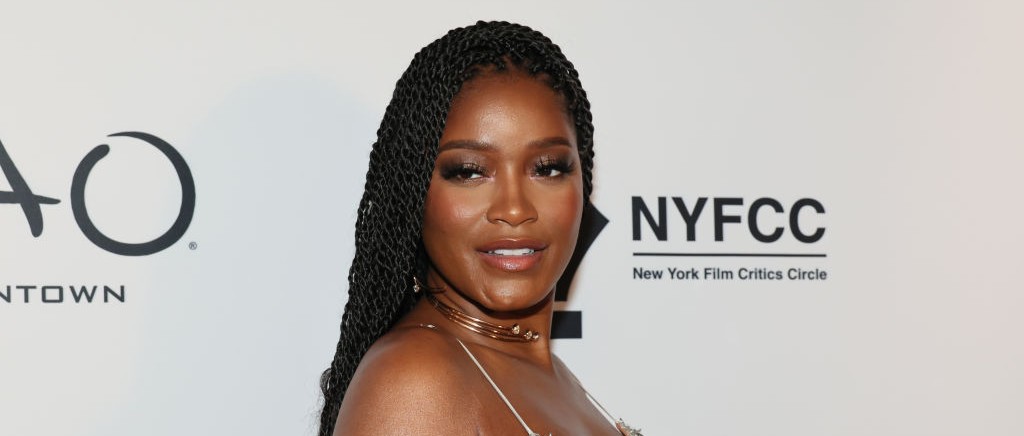
Dear Grammys, loving you is complicated.
As a music writer, the annual ceremony is mandatory viewing. However, as a Black woman obsessed with Black creative expression, it’s becoming increasingly difficult to overlook its flaws (covert microaggressions, racially charged snubs, and seemingly willful exclusion). Given the Grammys’ checkered past, I shouldn’t have any expectations of the event. But I just can’t abandon hope for the ceremony. Its latest categoric expansion seems to suggest that I’m not delusional for believing that the landscape of the Grammys can change for the better.
Similarly, for most musicians, divestment isn’t an easy fix either. Given the financial opportunities tethered to earning a coveted gramophone, acts are committed to the advancement of the Grammys. In the meantime, what’s the alternative? Platforming, advocating for, and investing in Black-centered ceremonies — because, yes, Black music awards shows still matter.
If not for the continued communal conversation and unapologetic displays of Black joy — such as Sexyy Red’s impromptu performance at the 2023 BET Awards — Black awards shows are also crucial for their historical preservation of Black art. Due to the erasure of Black musicians’ impact and the shrinking media sphere, archiving Black artists’ works has become more important than ever.
BET, Soul Train, and even the Source Awards (because, as André 3000 so eloquently put it: “Da Souf got sum to say”) all have carried the torch of cultural documentation when others, such as the AMAs, Grammys, and VMAs — didn’t deem it vital — or profitable. Here, we take a look at some of the award shows decided for Black entertainment in need of the public’s support.
BET Awards
The BET Awards remain the creme de la creme of Black award shows. Spanning the decades, the BET Network has introduced a variety of ceremonies to honor Black art: the namesake show, the hip-hop-centered ceremony, the BET Walk Of Fame show, the Gospel Awards, and more. Over the years, the BET Awards have served as the place for legacy acts to receive their flowers and, in turn, pass the baton to the next generation — i.e., the 2003 ceremony when Michael Jackson paid homage to James Brown.
Before Beyoncé was the global music icon she has become, the BET Awards called it first (via Mo’Nique). As other programming executives ignored the impact of Luther Vandross, the BET Awards dedicated an entire evening to the late singer. When other ceremonies failed to properly pay tribute to fallen stars, the BET Awards were there — i.e., the 2020 Prince tribute. The BET Awards also give living legends space to honor themselves, such as New Edition’s 2017 or Mary J. Blige’s 2019 Lifetime Achievement performances.
Though they aren’t perfect — no award show is — the BET Awards and all of their installments offer a constant cycle of appreciation.
Black Music Honors
Just as the title of the ceremony suggests, Black Music Honors is unapologetically Black. Firstly, instead of being held in bigger media markets like Los Angeles or New York City, Black Music Honors is hosted in Atlanta, Georgia.
From there, Black Music Honors focuses its attention on the overlooked medium entertainment demographic. The most common criticism for other shows is they tend to sway too hard in one direction (staid classics or unknown newbies) which is why viewership tends to fluctuate. With Freddie Jackson, SWV, Xscape, and Tamia as past honorees, Black Music Honors confirms Generation X and Xennials are viable audiences.
Lastly, the award show is broadcast by the historic networks: Stellar Network and the Martin Luther King III-co-founded Bounce TV, both Black-owned and Black-targeted commercial entertainment networks.
Black Girls Rock!
As one of the newer award ceremonies here on this list, Black Girls Rock! is the embodiment of what it means to focus on intersectional identities. Before the COVID pandemic put an end to its annual ceremony, the show took pride in highlighting Black women’s contributions to the arts, which often go unacknowledged.
Black Girls Rock! gained mainstream attention after former First Lady Michelle Obama attended the show in 2015. Outside of the ceremony’s focus, organizers don’t forget the less publicized details. For several years, the show was hosted in Newark, New Jersey, a majority Black city on a street named after a Black pioneer, Sarah Vaughan.
Given the city’s rich Black music history, it is the perfect place to honor Black musicians. Since its last show in 2019, a new ceremony has not yet been announced. But even in its short tenure, it created a huge ripple in television programming standards.
McDonald’s 365 Black Awards
Let’s be frank: organizing an award show isn’t a cheap undertaking. That’s why corporate sponsorship for events is so important. Believe it or not, McDonald’s is a key financial contributor to Black music programming. When the fast food chain isn’t collaborating with music’s biggest names, such as Cardi B, Saweetie, or Travis Scott, for specialty menus, it is using its ample resources for music-focused events.
The McDonald’s 365 Black Awards was one of the earliest showings of the corporate giant putting its money where the mouth is in terms of equitable opportunities for entertainers of color. Although the ceremony no longer takes place, McDonald’s hasn’t abandoned Black music events; each year, McDonald’s puts on its annual Gospel Fest.
NAACP Image Awards
The NAACP Image Awards is the epitome of “honoring your own.” Given the civil rights causes platformed by its presenter, the Image Awards’ focus is on acts that have injected their activism work with their entertainment career.
Sadly, the support for the show has continued to dwindle, but during its heyday, music stars like Dionne Warwick drew in massive audiences. Yes, before she was the melodic voice sampled in Doja Cat’s “Paint The Town Red,” Warwick was one of the very first Black pop stars. During the 1988 ceremony, the late Luther Vandross showcased just how influential Warwick’s music has been with a performance of her charitable single “That’s What Friends Are For.” The single highlighted how she’s served as an ally to the LGBTQ community, raising millions for AIDS research with Elton John, Stevie Wonder, and Gladys Knight.
Soul Train Awards
The Soul Train Awards has been a staple in Black households for generations. Since its inception as a variety show, Soul Train has kept its finger on the pulse of Black culture. As fresh faces such as Uproxx cover star Chlöe, Coco Jones, and Fridayy burst onto the scene, the Soul Train Awards are there to welcome them into the fraternity of Black musical excellence.
Each year, the ceremony curates a polished tribute to honor acts of the present (T-Pain) and past (Babyface). One of the Soul Train’s standout tributes came in 2010 when Chrisette Michele, Kem, Tamia, El DeBarge, Dionne Farris, Lalah Hathaway, Rachelle Ferrell, Goapele, and Faith Evans honored Anita Baker.
Stellar Awards
It isn’t a coincidence that many of music’s powerhouse vocalists got their start in religious houses of worship. Gospel is the foundation of several other genres, but most notably R&B. As the first and longest-running ceremony for gospel music, The Stellar Awards continuously amplifies how deeply gospel’s roots run.
Other award shows try to spotlight gospel acts, but more often than not, those performances or acceptance speeches are not televised. But when they are, it is magical (i.e., Chance The Rapper, Kirk Franklin, and Tamela Mann’s medley set at the 2017 Grammys).
Other genres pioneered by Black musicians, such as jazz, dance, country, and rock, have whitewashed their history books. Due to the Stellar Awards’ due diligence, the same can not be said of gospel music.
Trumpet Awards
Before Timbaland and Swizz Beatz had the multi-million dollar idea for artists to put their catalogs on display for a walk down memory lane, there was the Trumpet Awards. While Verzuz was intended to ignite a competitive spirit, the Trumpet Awards’ mission was to be commemorative.
Founded by civil rights leader and pioneering broadcasting executive Xernona Clayton, the televised event was a time capsule for acts whose legacies tend to be overlooked. The unapologetic admiration displayed by Steve Harvey during the Verzuz showdown between The Isley Brothers and Earth, Wind, and Fire form the essence of a Trumpet Awards ceremony. The Trumpet Awards made sure that the influence of groups such as The O’Jays, The Whispers, The Temptations, The Four Tops, and more was not forgotten.
UNCF Benefit
Although the United Negro College Fund (UNCF) benefit isn’t exactly an award show, it surely veers that way. As it baits viewers in with culture-shifting music performances, the UNCF benefit does what others often conveniently forget to do — hold entertainers socially accountable. Before Cardi B was ranting about public funding crises on Instagram or flexing her love for world history, UNCF demanded that celebrities use their platforms to shine a light on important topics like education. Just look at Megan Thee Stallion’s outreach work as a case study. The Texas Southern University graduate didn’t let her booming rap career derail her pursuit of higher education.
The only path to success for Black children should not be tethered to their ability to sing or dribble a ball. By way of the UNCF benefit, public figures lent their voices to show that pursuing a career in the medical field, sciences, or humanities is just as important. One of UNCF’s most beloved performances was The Color Purple star Fantasia’s tribute to Patti LaBelle in 2009.
VH1 Hip Hop Honors
Long before Hip-Hop 50 programming was on the minds of any television producer, VH1’s Hip Hop Honors was one of the first series to carve out a primetime slot to celebrate rap’s titans. Across the event’s thirteen-year run, it proved to be at the forefront of flower giving, paying homage to Rock And Roll Hall Of Fame inductee Missy Elliott, Kennedy Center honoree Queen Latifah, and the original “Queen Bee” Lil Kim long before other larger established ever batted an eye.
Given the cycle in which new rappers rise and fall from fame, it’s becoming increasingly difficult for acts to cement their legacy. Contrarily, hip-hop’s issue with ageism favors newbies’ dismissal of their predecessors. The VH1 Hip Hop Honors put an end to that. For a few hours each year, you’d be taken to school. Rookies were forced to learn where their flows, samples, and fashion sensibilities derived from. Now that Hip-Hop 50 has passed, it’d be a shame if the culture stopped honoring its pioneers.
Some artists covered here are Warner Music artists. Uproxx is an independent subsidiary of Warner Music Group.


